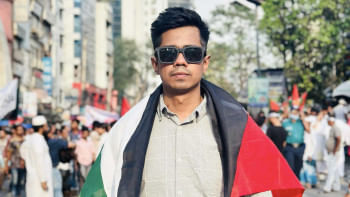Kurds won't get US arms
President Donald Trump told Ankara on Friday that the US will no longer supply arms to the Syrian Kurdish militia Washington has used against the Islamic State, Turkey's Foreign Minister Mevlut Cavusoglu said.
Trump delivered the message during what the Turkish presidency called a "productive" phone call with his counterpart Recep Tayyip Erdogan, and the White House hailed as reaffirming a "strategic partnership."
"Mr Trump said he gave a clear order and that after this, weapons would not be supplied to the YPG, essentially he said this nonsense should have been ended earlier," Mevlut Cavusoglu said during a press conference in Ankara.
The White House was less explicit about the US military's intentions towards the YPG.
But it confirmed that Trump had told Erdogan "of pending adjustments to the military support provided to our partners on the ground in Syria, now that the battle of Raqa is complete and we are progressing into a stabilization phase to ensure that ISIS cannot return."
The YPG is the Peoples' Protection Units Kurdish militia in Syria, which the US has seen as the most effective fighting force on the ground against the Islamic State extremist group.
Relations between the US and Turkey have been strained since the administration of former president Barack Obama over Washington's support for the YPG and the failure to extradite Pennsylvania-based Fethullah Gulen blamed for ordering last year's coup bid.
Meanwhile, Syria's opposition on Friday selected a chief negotiator for a unified delegation to next week's UN-brokered peace talks with Syrian President Bashar al-Assad's regime in Geneva.
Nasr al-Hariri, head of the opposition High Negotiations Committee, was picked to lead a 36-member negotiating team for the talks on November 28, after three days of intense negotiations between various opposition groups in Riyadh.
"Hariri was selected as the head of the delegation today," opposition member Jamal Suleiman told reporters.
The unified delegation will comprise of members from various groups including the High Negotiations Committee (HNC) -- the largest bloc in the opposition -- as well as the Cairo and Moscow-based platforms.
Syria's disparate opposition has been under heavy pressure to unify their ranks and row back on some of their more radical demands after a series of battlefield victories that have given Assad's regime the upper hand.
Several rounds of talks hosted by the United Nations have failed to bring an end to the Syrian conflict, which has killed more than 330,000 people since 2011 and forced millions from their homes.
Assad's fate has been a major stumbling block in multiple rounds of negotiations between the Syrian regime and the opposition.

 For all latest news, follow The Daily Star's Google News channel.
For all latest news, follow The Daily Star's Google News channel. 



Comments